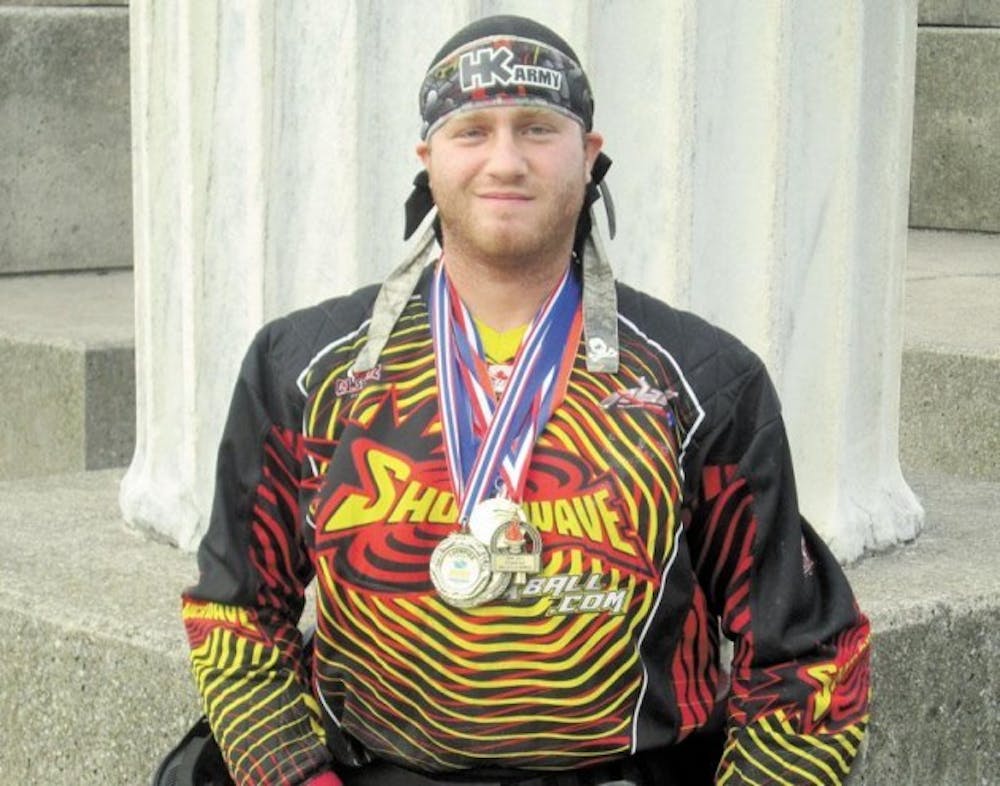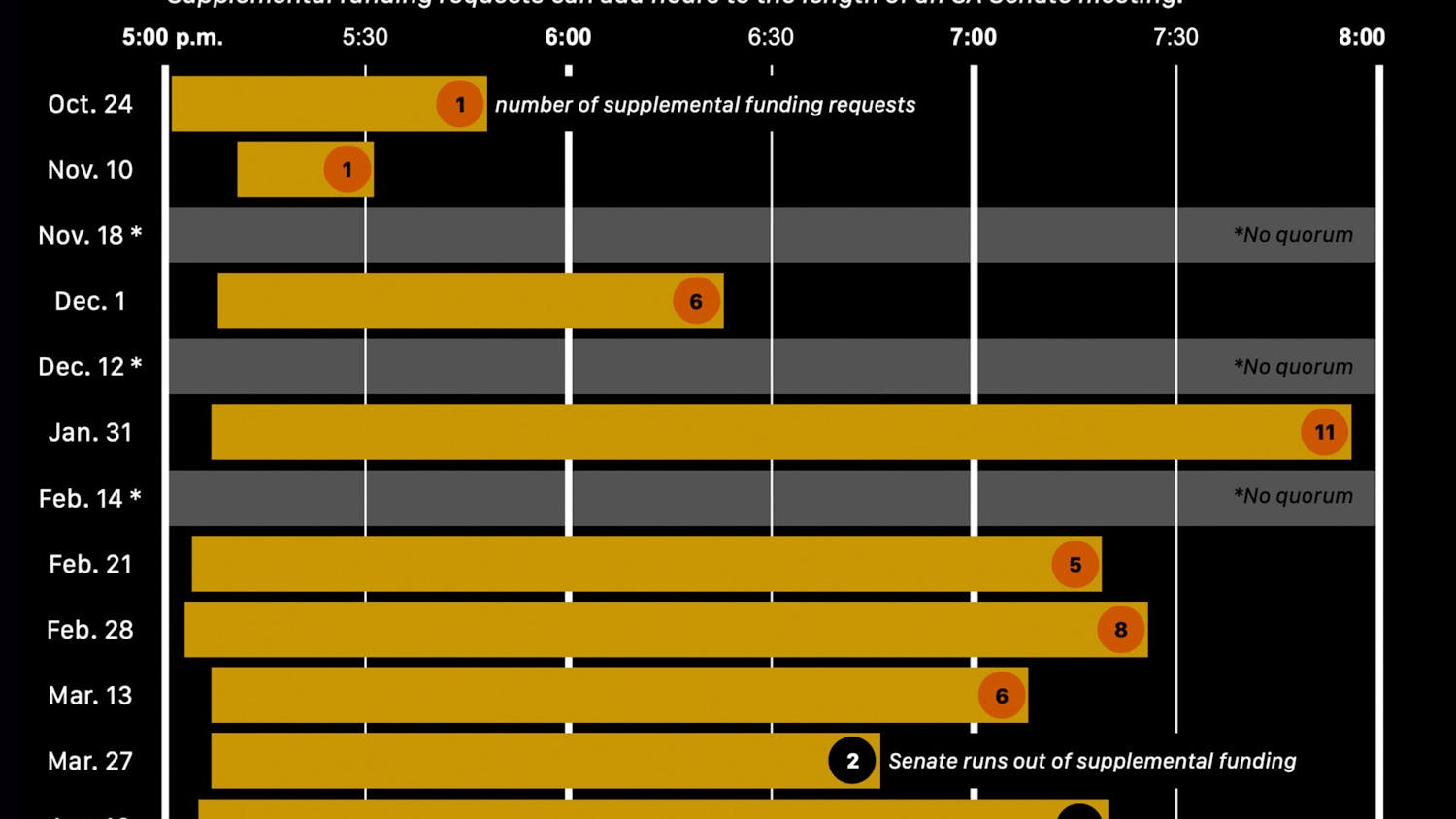Joe Barrett, dripping with sweat in the extreme heat of Thailand, armed with his gun, pods and team threads, sprinted into battle. He was thinking about his mission on the field, all while trying to avoid the hundreds of paintballs shot at him at up to 180 mph.
His team, as time expired, dove with flag in hand and hit the button.
They won the championship.
Barrett, professional paintball player and UB alumni, graduated in 2012. According to him, he is one of the top 200 paintball players in the world.
Joe has played in 14 different leagues and on over 30 different teams all over North America and Thailand. He loves what he does for a living and wouldn't give it up for any type of office job.
"I wanted to get the degree so I could have it in my pocket, but I look at a lot of people who work eight hour [days], [people] with three cars, a house and a boat, and I just don't want any part of it," Barrett said.
Paintball takes an undying amount of focus with dozens of variables and actions going on every second, according to Barrett.
Barrett has bested some of the top-ranking paintball players in the country. He has been playing the game for over 10 years and has been traveling all across the country for different competitions since he was 17 years old.
In basketball or baseball, there is one constant focal point: the ball. But paintball takes a high amount of adrenaline and a ridiculous amount of focus, according to Barrett.
One difference between paintball and other conventional sports - football, basketball or baseball - is the amount of referees. In paintball, games can average up to 10 referees at a time, covering the entire game.
During the game, each player has four to seven pods (devices used to hold the paintballs) on his/her lower back. A player will also have his or her sponsored clothing, a paintball mask to protect the face, and a gun, which could range from $800 to $1,500.
According to Barrett, some of the dirtier players resort to stepping on their opponents' pods and will even shoot them off their opponents' backs - a move he considers cheap and one he does not resort to on the field.
Barrett has missed birthdays, parties and weddings for paintball, and he has had fewer than a handful of weekends free in the last five years because of his dedication to the sport. He's worked countless odd jobs in order to pay for the equipment and trips.
Barrett even sold his couch and his sister's bicycle to play paintball.
"His whole world is dedicated to getting out on the field, and he'll do anything to play paintball," said George Kalkowsky, senior engineering major and president of UB Paintball. "The dude eats, sleeps and lives for this stuff. He got a tattoo of the Buffalo Bull after we won our national championship, and he wears [a tattoo] on his shoulder in honor of the regional team we play on. He gives his all."
According to Kalkowsky, Barrett will never give up.
"I've seen Joe collapse from exhaustion, but you'll never see him break. If there's still paintball to play he'll be the guy out there calling the shots," Kalkowsky said. "Joe's the best teammate I've ever played with, he's stubborn as hell, but I'd never want anyone else in my pit."
Ed Bautista, another former teammate of Barrett's and the secretary of UB Paintball, is grateful for everything Barrett gave the team and knows of his passion for the sport.
"Joe is hands down the most dominant paintball player I have ever played with," Bautista said. "Not only is he a talented player, he is also an exceptional coach. Everything I know about paintball, Joe has taught me."
Bautista credits Barrett for their team's exceptional reputation.
"By our junior year, Joe took a bunch of scrappy novice players and molded us into national champions," Bautista said.
A common misconception of paintball is that it does not require any athleticism, but this couldn't be further from the truth, according to Barrett.
Elite players sometimes spend three to five hours at the gym daily, while having restrictive diets and almost no body fat, according to Barrett. Barrett works out vigorously and bikes at least 20 miles on days he is not practicing or competing.
"This sport takes the cardio of soccer, the mental toughness of being in the military and the strategy of a chess game," Barrett said.
Barrett believes the strong relationship he has with his teammates is pivotal to their success as a team.
"They become your brothers ... you have to gel with your other players when you pick people; you have to be around people that you love," Barrett said. "I literally have a place to sleep in every state in the country and know if I'm in a new area without a tournament or competition or place to sleep, I'll have somewhere to go."
The connection that Barrett shares with these people extends beyond the field.
Even with Barrett's numerous first-place awards, he constantly has his sights set on new goals and aspirations. Barrett is preparing for a tryout near Orlando, Fla. with a professional team that could decide the fate of where he will reside for the next five to 10 years.
"I'm trying to be the best in the country ... I want to be the number one ranked player in the world, and I will do everything I need to do to get there ... This is my dream," Barrett said.
Email: features@ubspectrum.com





